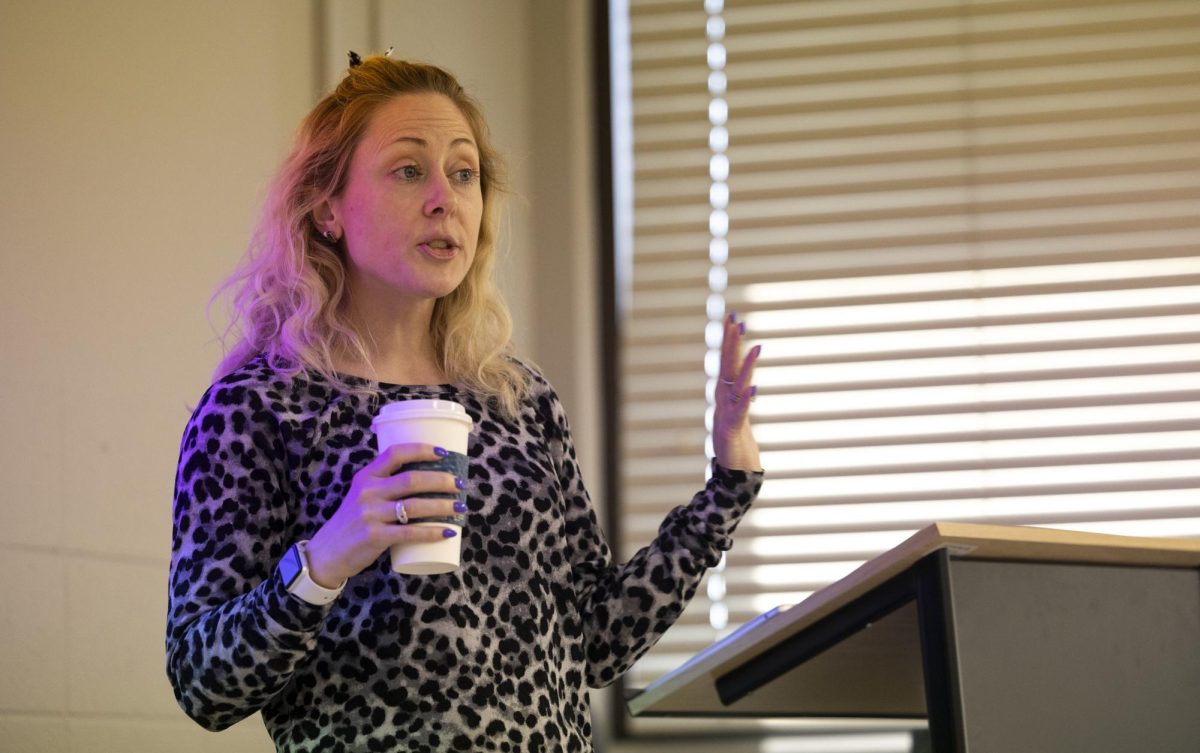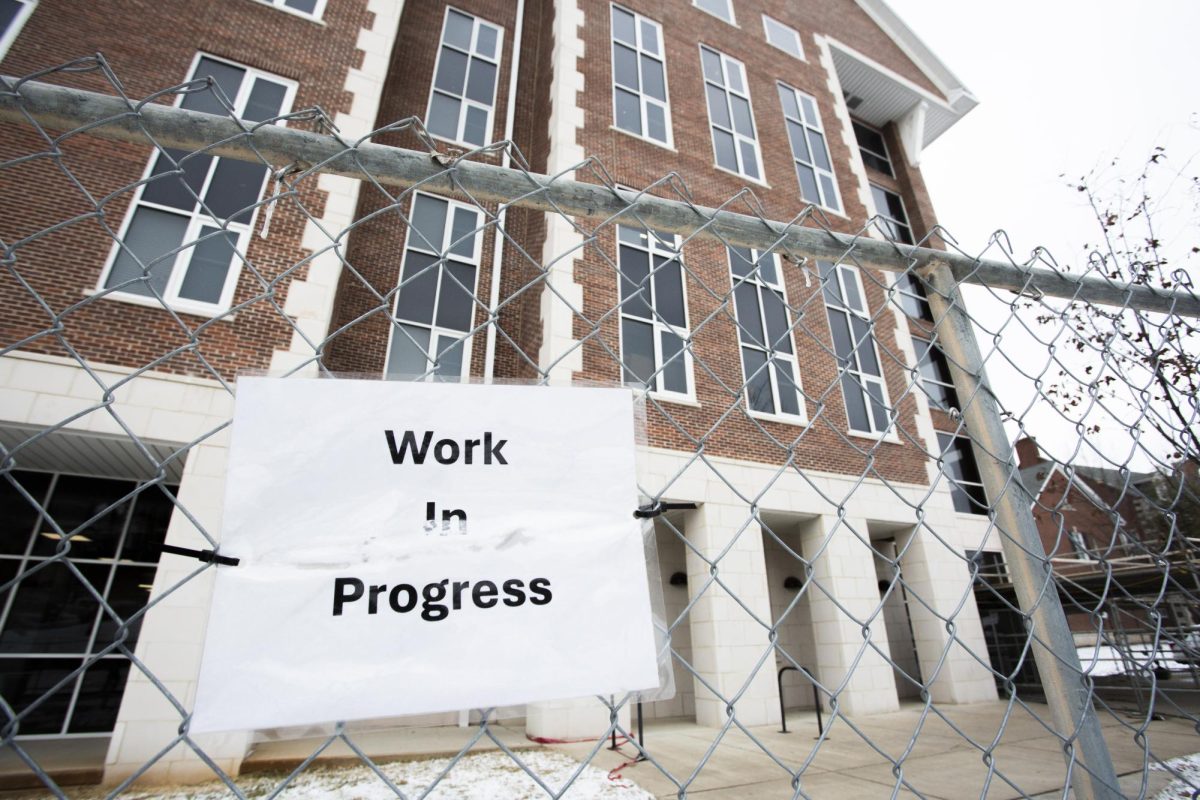Afghan journalist receives Award for Courageous International Reporting
September 29, 2017
The School of Journalism and Broadcasting welcomed an Afghan journalist to campus Thursday night to present him with the second annual Fleischaker/Greene Award for Courageous International Reporting.
Lotfullah Najafizada is an award-winning journalist who began as a designer at a small newspaper in Marzar-e-Sherif, Afghanistan, before moving to the online department of Kabul-based media group MOBY. Najafizada is now the director of Afghanistan’s first and largest 24/7 current affairs television station, TOLOnews.
Najafizada produces about 18 hours of television content per day and has interviewed several world leaders, including former British Prime Minister David Cameron, Afghan President Ashraf Ghani, Afghan Chief Executive Abdullah Abdullah and NATO Secretary General Jens Stoltenberg.
Najafizada is a journalist, “who in difficult and dangerous circumstances, has remained committed to the values of the free press,” Provost David Lee said.
Potter College of Arts and Letters Dean Lawrence Synder introduced Najafizada and presented him with the award, along with Jon Fleischaker and Kim Greene, the sponsors of the annual award.
The purpose of the award, Snyder said, is to select a recipient who upholds the ideals of freedom of the press while under duress and to provide a forum for analysis and discussion of international freedom of the press.
“Clearly he is a journalist with passion and commitment to truth,” Snyder said.
Najafizada has earned numerous awards in his career. In 2012, he was selected for the Asia 21 Young Leaders Initiative. In 2016, Reporters without Borders awarded him with the prestigious medal of Press Freedom Hero, and TIME Magazine profiled him as a next generation global leader. This year, at 29, he was named one of Forbes’ “30 under 30” top media influencers in Asia.
“It’s an honor to be here today, and I appreciate the recognition,” Najafizada said. “I come from a country that has gone through a lot in the past 50 years.”
Najafizada spoke about his own fight for free press in Afghanistan, as well as his colleagues’.
“In journalism, we often say that a story isn’t worth your life, Najafizada said. “Sometimes I question this in Afghanistan because in Afghanistan, the story is your life, so you’ve got to fight for your life.”
Though he has helped give Afghan citizens a platform to express their views, he said, “The Taliban hates it because we tell the truth. The government hates it because we expose their corruption. Warlords hate it because we expose their crimes. Drug lords hate it because we go after them.”
As a result, journalists in Afghanistan are at risk.
When the Taliban killed seven of Najafizada’s colleagues last year in a bus bombing, he was forced to tighten his own security. Often, he said he sleeps away from home for fear of putting his own family at risk.
However, he said this has hardened his resolve to make his country a better place.
“I see Afghanistan from a positive perspective; I see the light at the end of the tunnel…to work for a better Afghanistan,” Najafizada said.
He said 10 million Afghan children are in school, access to healthcare has tripled, life expectancy has increased from 50 to over 60, and Afghan students are getting more opportunities to study abroad.
Najafizada concluded by congratulating his colleagues and thanking WKU for the recognition on behalf of all Afghan journalists and those who have “paid the ultimate sacrifice, and to the ones who pay the sacrifice every single day.”
After asked by an audience member about his his courage to put himself at risk in order to tell stories, Najafizada said he doesn’t consider himself to be courageous.
“I don’t consider myself a brave man or a courageous journalist,” Najafizada said. “I consider myself someone who has committed his life and career to his country.”
Reporter Callie Miller can be reached at 270-745-6011 and caroline.miller528@topper.wku.edu.














